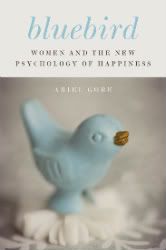The Traveling Death & Resurrection Show in the Los Angeles Times!
PADRE PIO, the 20th century Roman Catholic priest and healer said to have manifested Christ's wounds, was asked whether his stigmata were a result of concentrating so intently on the Crucifixion. "Go out to the fields and look very closely at a bull," he answered. "Concentrate on him with all your might and see if you start to grow horns." Frankka, the 28-year-old heroine of Ariel Gore's beguiling first novel, "The Traveling Death and Resurrection Show," is no saint. A college dropout raised by her devout grandmother, she travels the country as the star of a ragtag, countercultural, religious-themed circus. At the show's climax, she steps into the spotlight, draws on the force of a self-imposed fast and performs one awe-inspiring trick: Blood wells from her palms and drips onto the stage...
In countless run-down motels and greasy spoons along the highway, Frankka records the lives of the saints in a book--not just the canonical versions, but also the stories they whispered to her as she walked home alone from Catholic school: the early affairs, wrong turns and eccentricities that could comfort a girl who'd earned the epithet "Freaky Frances" after a classmate decided her eyes were set too far apart. Therese of Lisieux, for example, was "a hippie chick before her time," Frankka writes. Intent on doing everything, even the dishes, with love, Therese "had no grand plans--just the radical belief that she could fulfill her destiny simply by being herself."
Is it sacrilegious for an ordinary woman to summon blood to her palms or a sin to conceal what may be a gift from God? This is a brave and heady question for a first novel and one that the author answers--both conventionally and through the miraculous. What is sure by the end is that Frankka, like the rest of us, has to follow the path of Therese of Lisieux, the "Little Flower," in just being her quirky self."
--Regina Marler, Los Angeles Times... Read the whole review here: Cirque du surreal
In countless run-down motels and greasy spoons along the highway, Frankka records the lives of the saints in a book--not just the canonical versions, but also the stories they whispered to her as she walked home alone from Catholic school: the early affairs, wrong turns and eccentricities that could comfort a girl who'd earned the epithet "Freaky Frances" after a classmate decided her eyes were set too far apart. Therese of Lisieux, for example, was "a hippie chick before her time," Frankka writes. Intent on doing everything, even the dishes, with love, Therese "had no grand plans--just the radical belief that she could fulfill her destiny simply by being herself."
Is it sacrilegious for an ordinary woman to summon blood to her palms or a sin to conceal what may be a gift from God? This is a brave and heady question for a first novel and one that the author answers--both conventionally and through the miraculous. What is sure by the end is that Frankka, like the rest of us, has to follow the path of Therese of Lisieux, the "Little Flower," in just being her quirky self."
--Regina Marler, Los Angeles Times... Read the whole review here: Cirque du surreal





0 Comments:
Post a Comment
<< Home